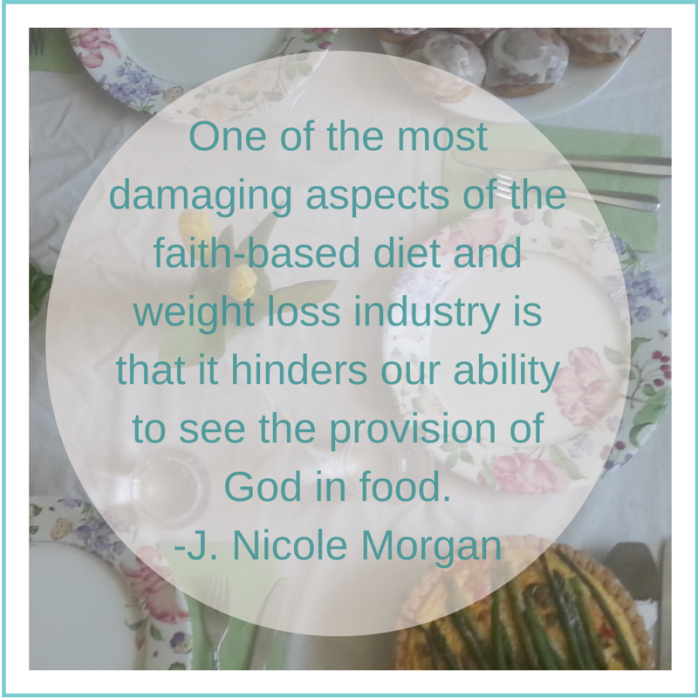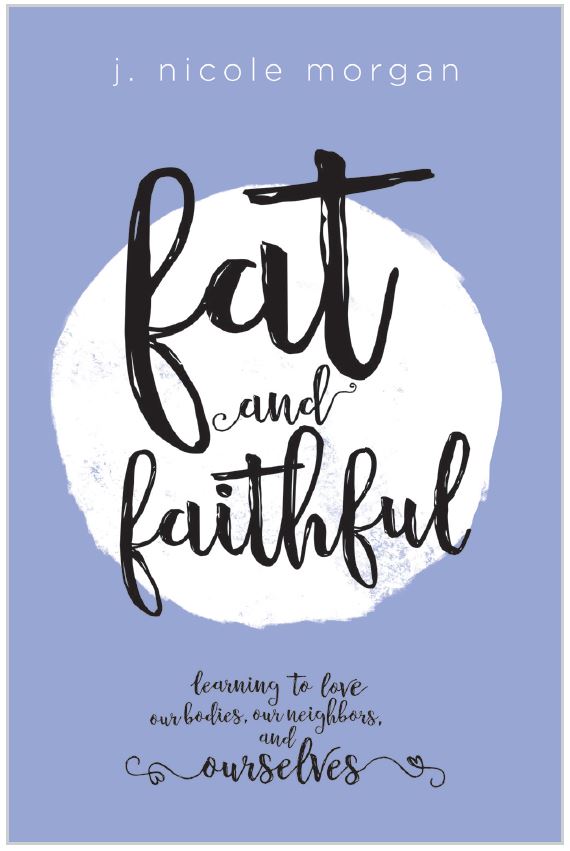The Resurrected Jesus Eats

In Luke 24 we see Jesus, after the resurrection, appear to his disciples. Two of the disciples have just invited the man who was walking with them on the road to stay the night, they didn’t recognize him as Jesus until he broke bread. Then Jesus disappears from their midst.
The disciples hurried back to Jerusalem to find the others and proclaimed that the had seen the risen Jesus and they knew it was him by the “breaking of the bread.” (v. 35)
And then Jesus shows up in their midst again. They are still startled, recognizing him as Jesus, but thinking it is perhaps a spirit and not really him.
He shows them his hands and his feet and they still are a mix of disbelief and joy and then Jesus says, “Have you anything here to eat?”
They hand Jesus a piece of broiled fish, and Jesus eats it.
Then Jesus explains the scripture and the prophecy and their responsibility to proclaim repentance and forgiveness of sins to all nations.
I am stuck on Jesus, in the midst of his disciples freaking out that he’s there and alive, asking for food.
My tunnel vision for all things embodiment is surely at play, but it is such an interesting moment. The bread makes sense – so closely mimicking the breaking of bread just a few days prior. This is a natural memory cue.
The fish even makes sense in the greater story – there have been other pieces of broiled fish shared among these people. There’s something in that too I’m sure, but it seems to me that Jesus is asking for food, eating, and participating in this very bodily act of digestion as a way to say:
“Yes. It’s me. The embodied Christ risen again. I am not a spirit. I am not an imagination. I am not some new form. This body was dead and now this body is alive. Resurrection. Restoration. The body is important and it came back, too.”
And a few verses later that body ascends to Heaven – holes in his hands, digestive tract in tact.
Disciples are trying to figure out why they’re seeing the previously dead Jesus standing before them. And Jesus asks for food. It seems ridiculous. It seems inconsequential. It seems incredulous that the risen Messiah, Jesus the Christ is hungry. How base, how completely human to be hungry. Which is exactly the point. Jesus took on the form of human. Jesus was incarnated into body. We live an incarnational faith.
We have a long history in Christianity that devalues the body, that makes the body less than the spirit and soul. I believe these thoughts are more connected to the ideas of Plato and the Gnostics than to Jesus Christ and the Christians. Over and over again in the Bible, God honors the body and esteems it – starting from the very beginning when humans are created in the image of God and including the ultimate endorsement of human body when Jesus Christ showed up on earth with hands and feet and human hunger. Our bodies matter for a whole host of reasons – not the least of which are that they are created in the image of God and that their value is proved when Jesus shows up in human flesh.
God’s provision for the body in the form of food and nourishment is repeated throughout scripture. Manna from heaven. Ravens in the desert. Oil that never runs dry. Land of milk and honey. 5 loaves and 2 fishes. Nets that strain underneath the weight of their catch. A piece of broiled fish.
I often think that one of the most damaging aspects of the faith-based diet and weight loss industry is that it hinders our ability to see the provision of God in food.
 If we allow it and we are so privileged to have it: food is a constant reminder of God’s provision in our life. Multiple times a day we eat. We put in sustenance that nourishes our mind, body, and soul. Alone or in groups – this is a chance for us to stop and remember to be thankful. And I believe that if those privileged enough to have ready access to food take the time to enjoy it rather than fear it – we would be more in tune to the needs of those who do not have food security.
If we allow it and we are so privileged to have it: food is a constant reminder of God’s provision in our life. Multiple times a day we eat. We put in sustenance that nourishes our mind, body, and soul. Alone or in groups – this is a chance for us to stop and remember to be thankful. And I believe that if those privileged enough to have ready access to food take the time to enjoy it rather than fear it – we would be more in tune to the needs of those who do not have food security.
For so much of my life I thought that I was supposed to act like I didn’t like food since I was fat. I was supposed to suppress any pleasure I got from the satiating nature of food or the way the tastes heightened my senses. I was supposed to feel guilty about the starving children, as if my fear and sense of failure could help alleviate that tragedy.
Our culture at large and the Christian diet industry specifically largely sees food as an enemy, temptation, guilt, rules, and something to be feared. In addition to our own nourishment needed for survival – food is a way that we enjoy life. If we are so blessed, food is not tasteless, bland, and boring. It has flavor and texture, intoxicating smells and visual appeal. I do not believe this is an accident – food is a good and beautiful gift given to us by the creator. Yet, we fear it, we fear what it will do to us if we enjoy this gift.
There are good and true teachings and practices for fasting. There are things to be learned from periods of abstaining. But, for the vast majority of us, these practices of extreme deprivation are not how God calls us to live our lives. We are right to avoid an over-indulgence that comes at the cost of exploiting others or become hedonistic, but this does not mean there should be no joy in food.
Food draws us together; it provides community. In John’s gospel we see a different post-fish resurrection story. Jesus gathers with his disciples on the beach, as they had done before. There are feasts and festivals throughout the Bible. We are invited to a great Wedding Feast. Our cultures and our touchstone moments often place food in the spotlight: holiday feasts, birthday cake. When we invite neighbors over, we fire up the grill, pop open the wine, pass the basket of bred.
Food sustains us in pleasurable ways. It draws us together. It is part of being a body.
After the resurrection, as Jesus is taking the time to appear to his disciples and remind them of what is important and to give them their instructions for how they are to live their life – he takes a moment to remind them that he is body, that body matters. In a world where we are still desperately trying to make our bodies acceptable to God, I do not think this is a small thing.

There are good and true teachings and practices for fasting. There are things to be learned from periods of abstaining. But, for the vast majority of us, these practices of extreme deprivation are not how God calls us to live our lives.
Not to mention, in the Old Testament where God is laying out the laws for Israel, he commands them to have feast after feast to remember his miracles and how he provides for them. God wants us to celebrate via food.
LikeLiked by 1 person
exactly! feasting is a huge part of the Christian faith
LikeLiked by 1 person
Nicole, this is such a poignant reminder of truth. Thank you! Learning to enjoy God’s good gift of food instead of living in fear of it is part of my story as well. Isn’t it wonderful how the gospel invades every aspect of our lives… even our basest need for food and drink?
LikeLike
Thanks for taking the time to read and comment, Bethany!
It is indeed beautiful the way the gospel invades even our basest needs.
So nice to reconnect here. 🙂 I’ve just glanced through your website so far – but it’s beautiful! Looking forward to trying out some of the recipes. 🙂
LikeLike